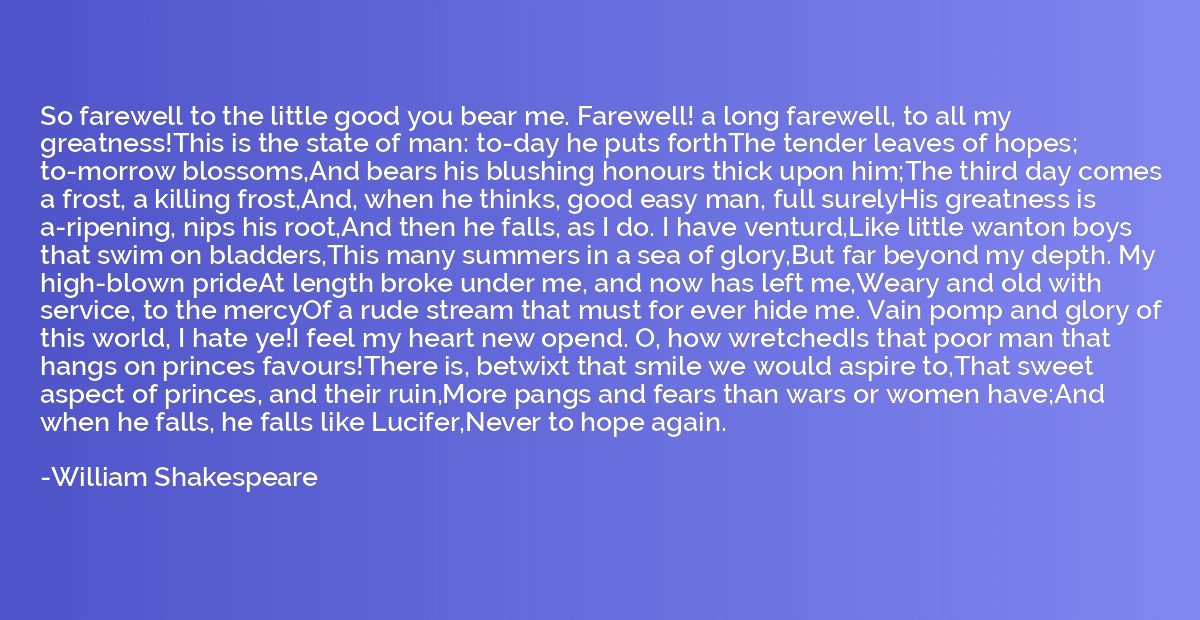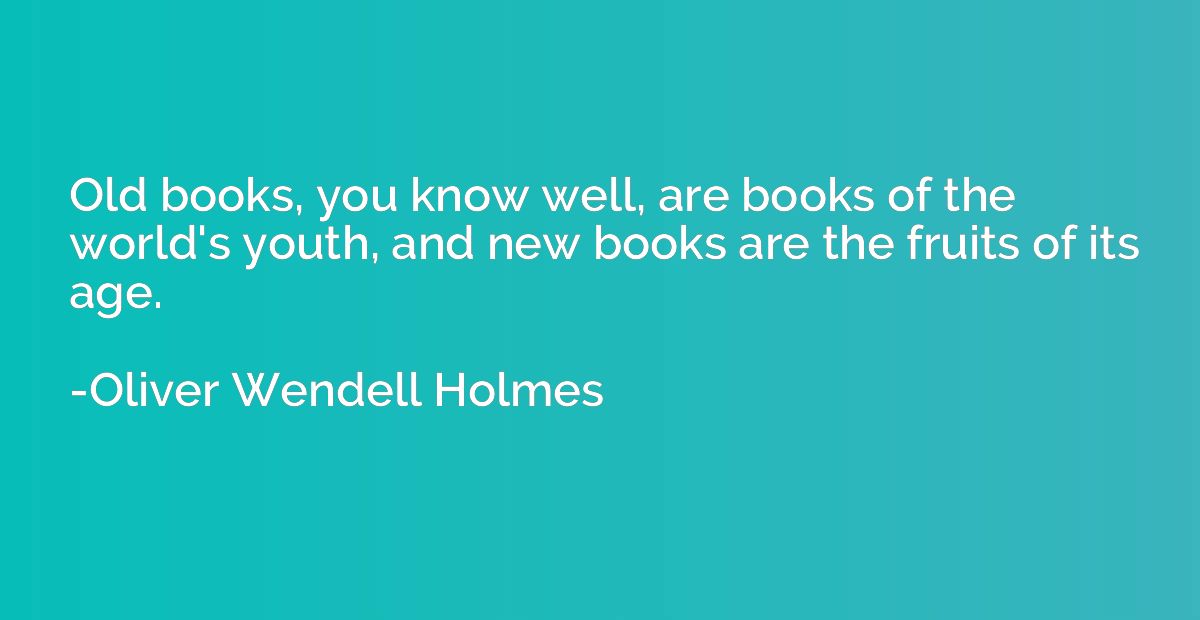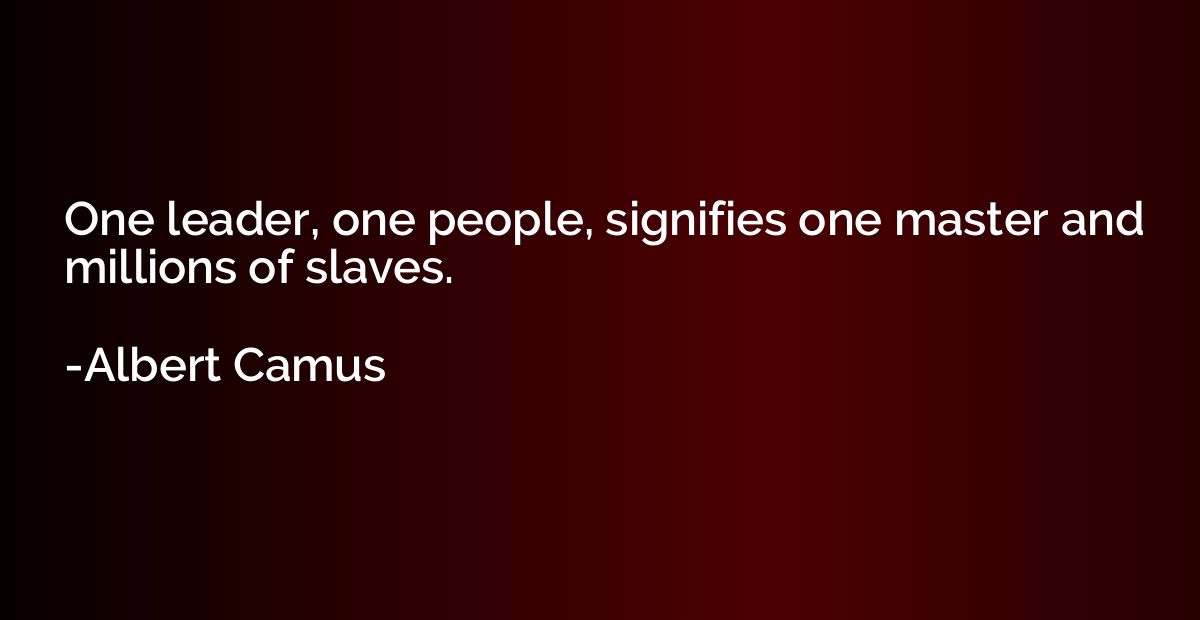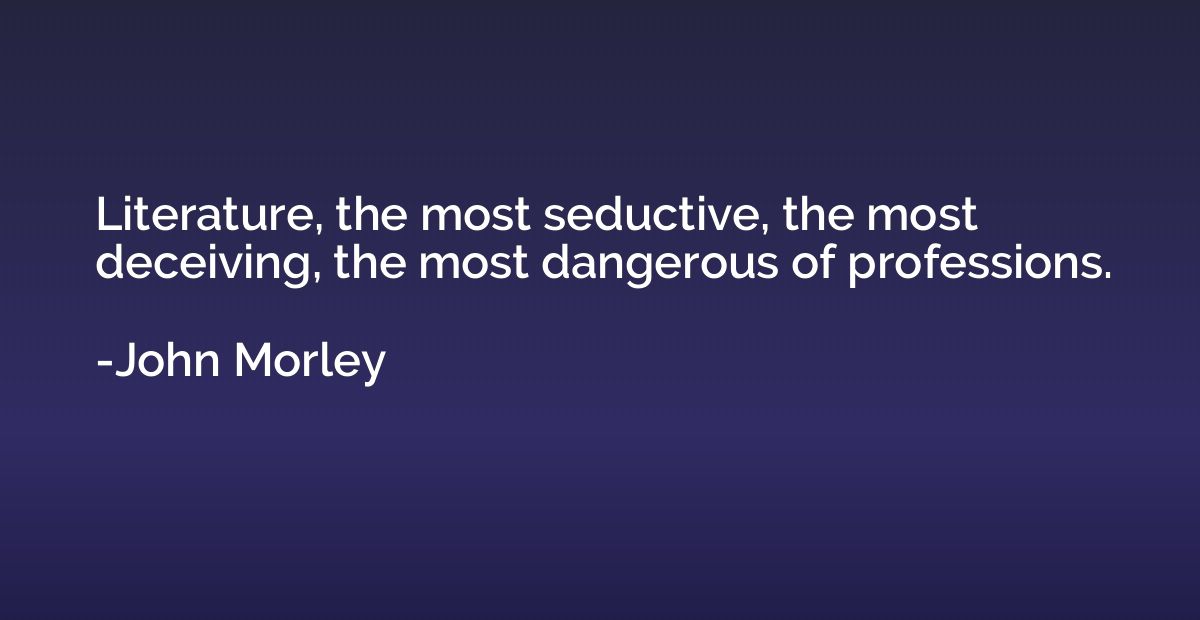Quote by William Shakespeare
So farewell to the little good you bear me. Farewell! a long farewell, to all my greatness!This is the state of man: to-day he puts forthThe tender leaves of hopes; to-morrow blossoms,And bears his blushing honours thick upon him;The third day comes a frost, a killing frost,And, when he thinks, good easy man, full surelyHis greatness is a-ripening, nips his root,And then he falls, as I do. I have venturd,Like little wanton boys that swim on bladders,This many summers in a sea of glory,But far beyond my depth. My high-blown prideAt length broke under me, and now has left me,Weary and old with service, to the mercyOf a rude stream that must for ever hide me. Vain pomp and glory of this world, I hate ye!I feel my heart new opend. O, how wretchedIs that poor man that hangs on princes favours!There is, betwixt that smile we would aspire to,That sweet aspect of princes, and their ruin,More pangs and fears than wars or women have;And when he falls, he falls like Lucifer,Never to hope again.

Summary
This quote, spoken by Cardinal Wolsey in Shakespeare's play "Henry VIII," reflects the transient nature of human greatness and the inevitable downfall that follows. Wolsey laments his own rise to power and subsequent fall from grace, emphasizing the fickle and fleeting nature of success. He compares his experience to tender leaves that blossomed only to be destroyed by a killing frost. The quote serves as a reminder of the dangers of pride and the fragile illusions of power and fame, reinforcing the idea that true happiness and contentment cannot be found in the vain pomp and glory of the world.














